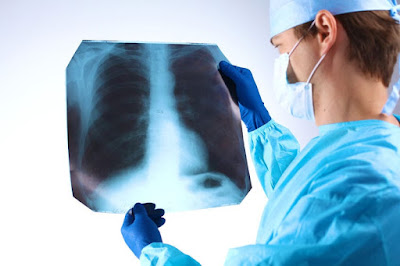How to differentiate between COVID-19 and Common Flu?
We all know that the flu season is just around the corner every year when summer comes to an end and school opens. But this year, while we're still in the middle of the COVID-19 outbreak, our annual flu season will start.
You've also learned that there are many of the same signs that coronavirus and the flu have. And maybe right now you're still feeling a little under the weather. So how can you say the differences between the symptoms of COVID-19 and those of the flu? The simple answer is this: It can be challenging. But to help you, KRIMS Hospitals is here. KRIMS Hospitals is the best hospital in Nagpur. Are your flu symptoms consistent? Or are these indicators indicating that you were affected by COVID-19? The differences between the flu symptoms and COVID-19 will be broken down, and also what other differences and similarities occur between both the two viral diseases so that you are as ready as possible for the flu season.
What causes COVID-19 and the Flu?
The virus that triggers them is the first difference between COVID-19 and the flu. While both diseases are caused by viruses, various forms and types of flu viruses cause the flu. Three key types of flu viruses are available: types A, B, and C. Among these viruses, mutations occur that lead to various types. Every year the World Health Organization carries out studies to forecast that flu virus types are more likely to spread each year.
In contrast, COVID-19 is caused by a virus that belongs to a family of coronavirus. Diseases, such as severe acute respiratory syndrome (SARS) and the Middle East respiratory syndrome, are caused by many forms of coronavirus (MERS). In 2019, the type of coronavirus that causes COVID-19 was defined and is known as coronavirus 2 serious acute respiratory syndrome or SARS-CoV-2 for short.
COVID-19 vs Flu Symptoms:
Depending on symptoms alone the symptoms arising from COVID-19 and the flu are identical, which may make it hard to distinguish between the two. Your doctor can undergo tests to confirm the proper treatment if you are feeling ill and you have symptoms correlated with both COVID-19 and the flu.
Here are some differences between Flu and COVID-19:
COVID-19:
Usually, if you have COVID-19 signs, they will appear five days after infection, but symptoms can occur as early as two days after infection or as far as 14 days after infection. As potential signs of COVID-19, the CDC lists the following.
- Chills or fever
- Coughing
- Breathlessness or breathing problems
- Tiredness
- Aches in the muscles or body
- Headaches
- New loss of taste or smell
- Soreness of throat
- Congestion or a runny nose
- Dizziness or vomiting
- Diarrhea
Flu:
You've also learned that there are many of the same signs that coronavirus and the flu have. And maybe right now you're still feeling a little under the weather. So how can you say the differences between the symptoms of COVID-19 and those of the flu? The simple answer is this: It can be challenging. But to help you, KRIMS Hospitals is here. KRIMS Hospitals is the best hospital in Nagpur. Are your flu symptoms consistent? Or are these indicators indicating that you were affected by COVID-19? The differences between the flu symptoms and COVID-19 will be broken down, and also what other differences and similarities occur between both the two viral diseases so that you are as ready as possible for the flu season.
What causes COVID-19 and the Flu?
The virus that triggers them is the first difference between COVID-19 and the flu. While both diseases are caused by viruses, various forms and types of flu viruses cause the flu. Three key types of flu viruses are available: types A, B, and C. Among these viruses, mutations occur that lead to various types. Every year the World Health Organization carries out studies to forecast that flu virus types are more likely to spread each year.
In contrast, COVID-19 is caused by a virus that belongs to a family of coronavirus. Diseases, such as severe acute respiratory syndrome (SARS) and the Middle East respiratory syndrome, are caused by many forms of coronavirus (MERS). In 2019, the type of coronavirus that causes COVID-19 was defined and is known as coronavirus 2 serious acute respiratory syndrome or SARS-CoV-2 for short.
COVID-19 vs Flu Symptoms:
Depending on symptoms alone the symptoms arising from COVID-19 and the flu are identical, which may make it hard to distinguish between the two. Your doctor can undergo tests to confirm the proper treatment if you are feeling ill and you have symptoms correlated with both COVID-19 and the flu.
Here are some differences between Flu and COVID-19:
COVID-19:
Many SARS-CoV-2 infected individuals do not feel ill or show symptoms, but they can still spread the virus to others. Symptoms of COVID-19 can involve a new lack of taste (ageusia) or odour, unlike the flu (Anosmia).
Usually, if you have COVID-19 signs, they will appear five days after infection, but symptoms can occur as early as two days after infection or as far as 14 days after infection. As potential signs of COVID-19, the CDC lists the following.
- Chills or fever
- Coughing
- Breathlessness or breathing problems
- Tiredness
- Aches in the muscles or body
- Headaches
- New loss of taste or smell
- Soreness of throat
- Congestion or a runny nose
- Dizziness or vomiting
- Diarrhea
Flu:
Usually, the flu develops unexpectedly and may cause symptoms that are mild to serious. Symptoms typically grow one to four following days illness from the flu virus. People who have the flu frequently suffer any or more of the following symptoms, as per the CDC.
- Flu or feeling feverish/chills
- Coughing
- Soreness of throat
- Stuffy or runny nose
- Aches in the muscles or body
- Headache
- Sleepiness (tiredness)
- Nausea and diarrhea (more severe in adults)
Prevention for COVID-19 and Flu are as follow:-
COVID-19: There is really no vaccine for the prevention of COVID-19 at present. The development of a vaccine is being expedited by vaccine developers and other scientists and manufacturers.
Flu: Regular vaccine against the flu is beneficial in preventing or minimizing the duration of flu. As the vaccinations are modified each year to safeguard against the 3 or 4 flu virus strains predicted to occur each year it is vital to get your flu shot yearly.
If you experience symptoms consistent with or suspect you might have been infected with COVID-19 or the flu, please contact the KRIMS hospital in Nagpur. It is the best multispeciality hospital in Nagpur. Doctors at the KRIMS Hospitals will prescribe the required tests as well as possible options for treatment.
- Flu or feeling feverish/chills
- Coughing
- Soreness of throat
- Stuffy or runny nose
- Aches in the muscles or body
- Headache
- Sleepiness (tiredness)
- Nausea and diarrhea (more severe in adults)
Prevention for COVID-19 and Flu are as follow:-
COVID-19: There is really no vaccine for the prevention of COVID-19 at present. The development of a vaccine is being expedited by vaccine developers and other scientists and manufacturers.
Flu: Regular vaccine against the flu is beneficial in preventing or minimizing the duration of flu. As the vaccinations are modified each year to safeguard against the 3 or 4 flu virus strains predicted to occur each year it is vital to get your flu shot yearly.
If you experience symptoms consistent with or suspect you might have been infected with COVID-19 or the flu, please contact the KRIMS hospital in Nagpur. It is the best multispeciality hospital in Nagpur. Doctors at the KRIMS Hospitals will prescribe the required tests as well as possible options for treatment.




Comments
Post a Comment